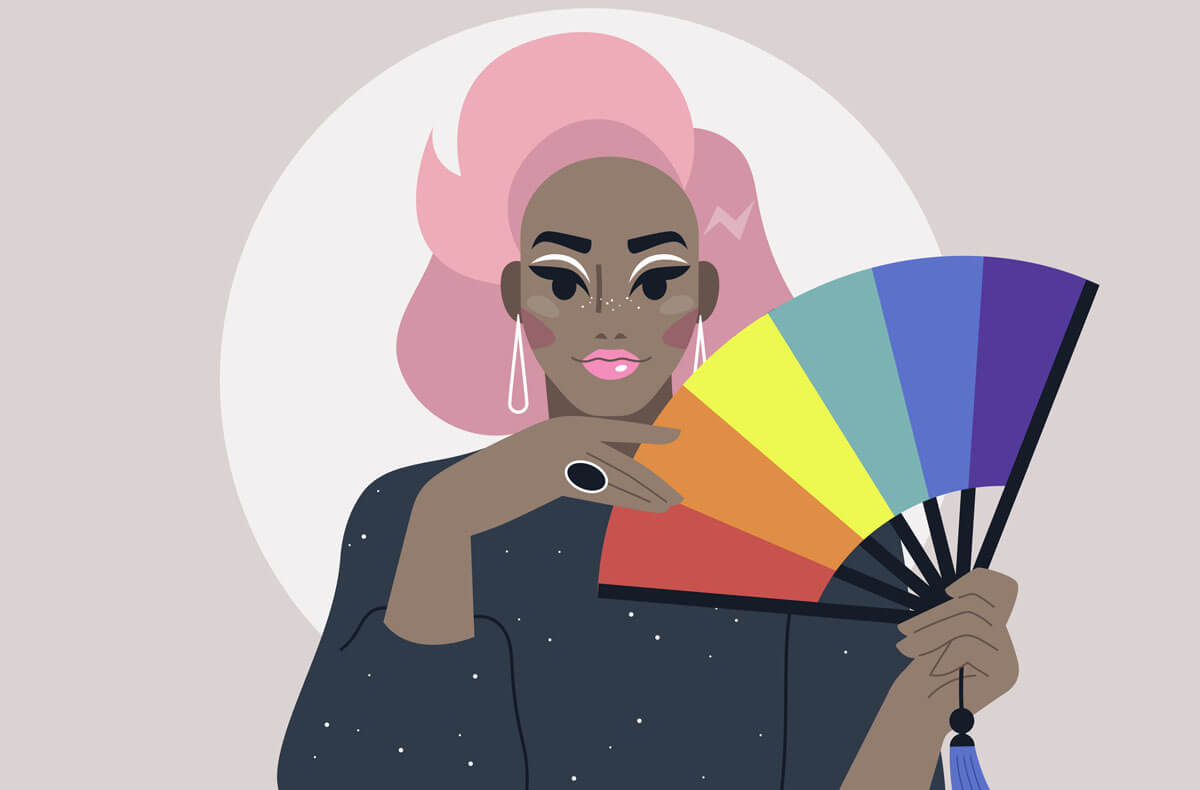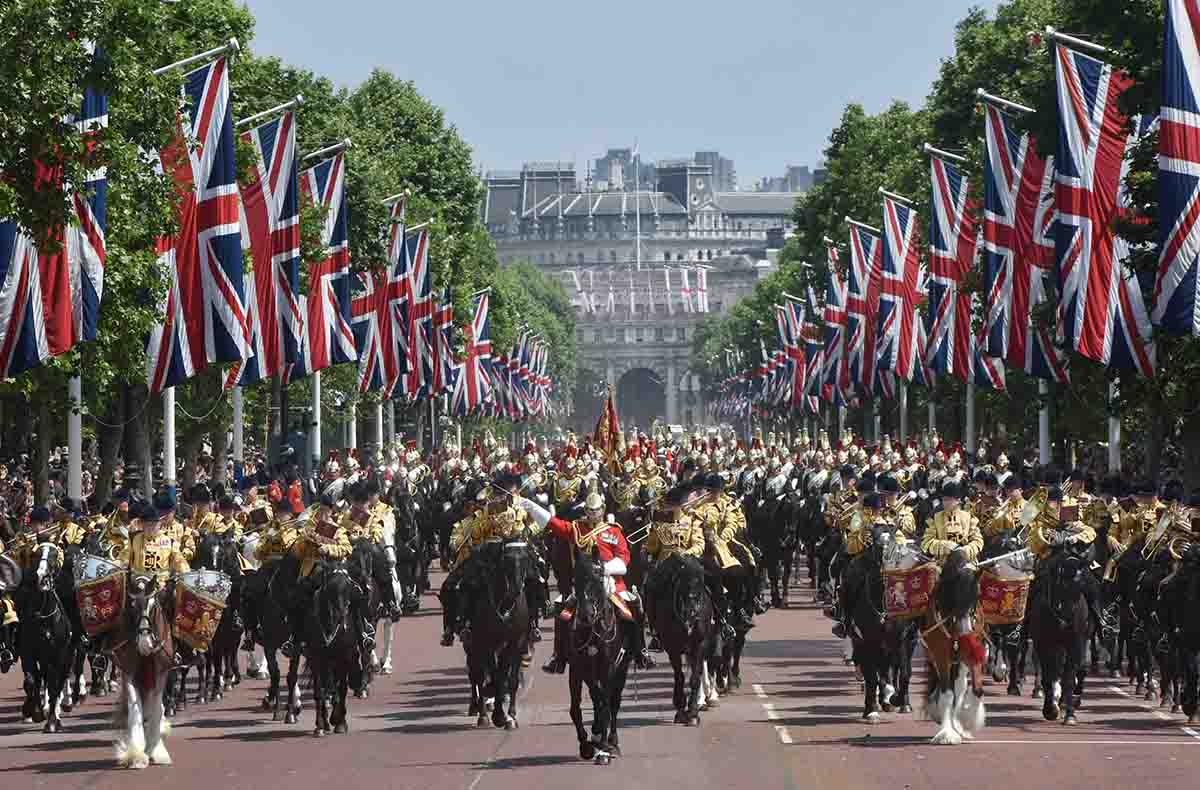
There was a time not so long ago when men were men and women were women. And drag was…well, normal. At least in Britain.
The death last month of Paul O’Grady, the comedian who became famous for his Lily Savage persona, illustrates how much of the “culture wars” is artificial and recent. There are those on both sides of the Atlantic who recoil in horror at the thought of drag queens reading stories to children. Savage, Danny La Rue and Dame Edna Everage were staples on United Kingdom television from the 1960s onwards. In fact, Irish-born La Rue was one of Britain’s highest-paid entertainers in the 1970s. Barry Humphries, an Australian writer and performer of remarkable versatility, found international fame through his Dame Edna character.
These men—and hardly anyone ever doubted that they were men dressed as women—became stars in an era when toxic masculinity was rampant and “woke” culture was decades in the future. There were few, if any, suggestions that their acts were misogynistic. Other males, women and children enjoyed them for what they were: hugely talented performers.
As for corrupting children, one of the most anticipated Christmas treats this side of the Atlantic remains the pantomime, a raucous annual interpretation of stories like Aladdin and Peter Pan, typified by slapstick and audience participation. One of the genre’s core characters is the Panto Dame, who is almost always a man. Pantomime remains popular across Britain’s social classes and is the first theatrical experience for many youngsters.
Drag has deep roots that reach back centuries rather than decades. Men performed women’s roles in William Shakespeare but that was because it was illegal for female actors to take to the stage until 1661. The tradition persisted afterwards, however, and Music Hall made great play of cross-gender performers, making male-impersonator Drag Kings like Annie Hindle popular in the notoriously staid Victorian era.
The depth of the tradition can be seen in some of the most familiar songs in pop music. Lola, by The Kinks, depicts a somewhat comic encounter with a cross-dressing man in a nightclub. The Beatles’ Get Back features “Sweet Loretta Martin” who “thought she was a woman, but she was another guy.” The Who’s 5:15 links teenage confusion, sexual frustration, drug use and violence and blurs the boundaries of Mod flamboyance with the phrase, “he-man drag in the glittering ballroom.”
By contrast, Lou Reed’s Walk On The Wild Side made cross-dressing in New York City dangerous and edgy. Reed’s song was a message from the underground. The allusions to drag in British mainstream pop are more organic and less exotic—and generally less erotic.
This was reinforced by the Glam Rock era. Artists like David Bowie and Marc Bolan were consciously androgynous but many of the bands like Slade and Sweet exuded a rugged masculinity. They embraced the term “brickies in dresses,” combining the aesthetics of bricklaying and building sites with drag.
The tributes to O’Grady from across the political spectrum reflected this, although it is possible to question some of the eulogies. Dominic Raab, the deputy Prime Minister, praised “Paul Grayson” in the House of Commons before being corrected. Raab possibly confused O’Grady with Larry Grayson, a gay actor, comedian and presenter and a man not associated with drag.
The Conservative MP went on to crowbar a bit of culture-war rhetoric into his tribute, saying: “We need to avoid the wokery and limitations on comedy.” The mask slipped pretty quickly.
Others took a similar tack. Amanda Holden, an actor and TV personality, said on her radio show that what she loved most about O’Grady was “he was not woke in any way.” The weaponizing of the 67-year-old’s death was breathtaking in its gall, particularly because O’Grady was a vocal LGBTQ campaigner and a tireless critic of the Conservative government’s 13-year program of austerity.
It is unlikely that Britain will experience the sort of assault on drag queens that the United States has endured. There has been some criticism of readings in schools in the UK but it has mainly come from those on the margins of credibility and church publications. Religion—and the religious right—does not have such a strong foothold as in America.
The protests against drag queen appearances in front of children in the U.S. have taken on an ugly tone with groups like the Proud Boys conflating cross-dressing with paedophilia and grooming.
RuPaul’s Drag Race, a reality competition show, has brought the art to a wider audience across America in the past 14 years and its success seems to have triggered those on the far right. Drag artists are seen on television by more people than ever but LGBTQ communities have suffered a growing level of hate attacks.
Politicians like Congresswoman Lauren Boebert have kept up a relentless public crusade against drag but continue to distance themselves from the violent knock-on effects of their words. The likes of Boebert have been accused of motivating stochastic terrorism, where ideological acts are committed by lone-wolf individuals who are inspired by the rhetoric of prominent voices in the media and politics. This allows those in positions of power to distance themselves from the consequences of their actions.
So far Britain has been largely immune to the excesses seen across the Atlantic but the far right have targeted transgender rights as a hot-spot issue where they can win easy support at the expense of a fairly small proportion of the population. The politics of fear is the cornerstone of populism.
Most Britons are not engaged with the debate but nevertheless support for trans rights has declined in the past five years. This will have an impact on the wider LGBTQ community.
Yet cross dressing is still embedded in British life. The emotional reaction to O’Grady’s death proves that. The lines between men and women may be growing increasingly blurred—and political—but drag queens still rule.



